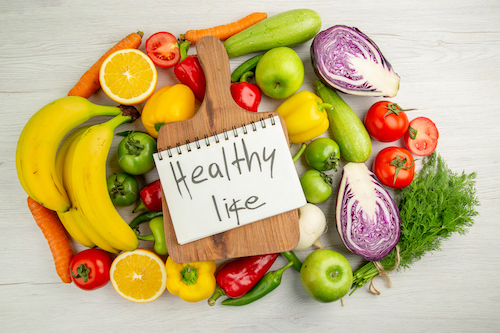
The rise in popularity of vegetarian diets in recent years is no coincidence, as more people recognize its benefits. There are numerous benefits to consuming a diet that is primarily plant-based. From improved health outcomes to a reduced environmental impact, the advantages of a vegetarian diet are undeniable.
One of the most significant benefits of a vegetarian diet is improved health. Research suggests that by choosing a vegetarian diet, you can potentially lower your risk of heart disease, diabetes, and certain types of cancer, helping you lead a healthier and more vibrant life. Plant-based foods are high in fiber, vitamins, and minerals, and are often lower in saturated fat and cholesterol than animal-based foods. This can lead to a reduced risk of chronic diseases and a longer lifespan.
Another benefit of a vegetarian diet is weight loss. Plant-based foods typically have fewer calories compared to animal products, making a vegetarian diet effective for maintaining a healthy weight. Furthermore, a vegetarian diet can enhance gut health by boosting fiber intake and promoting beneficial bacteria.
A vegetarian diet can also have a positive impact on the environment. Animal agriculture is a major contributor to greenhouse gas emissions and deforestation, and a vegetarian diet can significantly reduce an individual's environmental footprint.
Eating a vegetarian diet can also be a way to show ethical considerations for animal welfare and sustainability. It can also be a way to support local farmers, as a vegetarian diet can help to reduce the dependence on industrial-scale animal agriculture.
In conclusion, a vegetarian diet can offer many benefits for both personal health and the well-being of the planet. From reducing the risk of chronic diseases to promoting a healthy weight and improving gut health, a vegetarian diet can improve overall health and wellness.
A vegetarian diet definitely has a positive impact on the environment as it reduces greenhouse gas emissions and deforestation. Furthermore, it can be a way to show ethical consideration for animal welfare and to support local farmers.
However, it's important to note that a vegetarian diet should be well-planned to ensure that you get all the necessary nutrients. A balanced vegetarian diet should include a variety of fruits, vegetables, whole grains, legumes, nuts, and seeds, and fortified foods or supplements may be necessary to meet nutrient needs.
If you're considering a vegetarian diet, it's a good idea to speak with a healthcare professional or a registered dietitian to ensure that you're getting all the nutrients you need. With the right planning, a vegetarian diet can be a delicious and nutritious way to improve your health and well-being, while also benefiting the environment and animals.